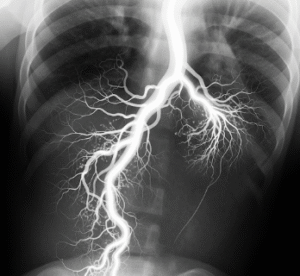What is DNACPR?
A DNACPR decision (Do Not Attempt Cardiopulmonary Resuscitation) is a medical directive indicating that cardiopulmonary resuscitation (CPR) should not be performed if a patient’s heart stops or breathing ceases.
It is a key aspect of advance care planning, particularly for patients with:
✔️ Terminal illnesses
✔️ Severe chronic conditions
✔️ Advanced age with limited life expectancy
✔️ Poor prognosis after cardiac arrest
DNACPR does not mean withholding other treatments—patients continue to receive pain relief, nutrition, oxygen, or other medical care.
In Korea, DNACPR decisions are recognized under the Act on Hospice and Palliative Care and Decisions on Life-Sustaining Treatment for Patients at the End of Life. Hospitals, hospice centers, and care teams follow legal and ethical guidelines to ensure decisions are patient-centered, documented, and respected.
➡️ Prevents unwanted or non-beneficial resuscitation
➡️ Supports dignity and patient autonomy at the end of life
➡️ Reduces unnecessary suffering and medical interventions
Why It’s Done
DNACPR decisions are made to:
✔️ Respect patient wishes – Ensuring care aligns with personal values
✔️ Avoid futile interventions – CPR may not improve survival for patients with severe conditions
✔️ Focus on quality of life – Prioritizing comfort, dignity, and symptom management
✔️ Reduce emotional and ethical burden – Families and healthcare providers can avoid aggressive, stressful interventions
Medical Benefits:
➡️ Prevents trauma from CPR – Broken ribs, internal bleeding, or other injuries from resuscitation attempts
➡️ Allows prioritization of comfort care – Pain relief, oxygen therapy, and supportive care
➡️ Promotes clear communication – Ensures everyone involved understands the patient’s wishes
In Korea, DNACPR decisions are part of advance care planning discussions, often integrated with hospice or palliative care programs.
Alternatives
When DNACPR is chosen, other medical interventions can still be provided:
⭐ Full medical treatment without CPR – Medications, antibiotics, oxygen, and other supportive care
⭐ Hospice and palliative care – Focuses on symptom management, comfort, and psychosocial support
⭐ Limited interventions – Such as defibrillation or medications in certain circumstances, if agreed upon
⭐ Advanced care planning documentation – Allows patients to specify which treatments they want or refuse
👉 DNACPR is not the same as “do not treat”—patients can receive all appropriate medical care except CPR.
Preparation
Preparing for a DNACPR decision in Korea involves careful discussion, documentation, and legal compliance:
🔹 Patient Consultation – Doctors discuss prognosis, risks, benefits, and alternatives
🔹 Family Involvement – Family members or caregivers are included, respecting patient consent
🔹 Legal Documentation – Signed forms according to the Korean law on life-sustaining treatment
🔹 Education – Explaining what CPR involves, its success rates, and possible complications
⭐ Ensure patient understanding – Decision should be informed and voluntary
⭐ Review periodically – DNACPR preferences may change over time depending on health status
How It’s Done
- Assessment by Medical Team
✔️ Evaluate patient’s medical condition and prognosis
✔️ Determine likely benefit or futility of CPR - Discussion and Consent
🔹 Clear explanation of DNACPR, its meaning, and implications
🔹 Patient (or legally authorized representative) provides consent - Documentation
➡️ Formal DNACPR form completed and signed
➡️ Entered into hospital records for staff reference - Implementation
🔸 If cardiac or respiratory arrest occurs, resuscitation is not initiated
🔸 Continue all other medical treatments and comfort care
Highlights:
✔️ Ethical and legal compliance – Ensures decisions are respected
✔️ Patient-centered – Decision aligns with individual values
✔️ Transparent – All healthcare staff are informed
Recovery / Follow-up
While DNACPR does not involve active treatment, follow-up focuses on care quality and comfort:
✔️ Ongoing symptom management – Pain relief, anxiety control, and oxygen therapy
✔️ Psychological support – Counseling for patients and families
✔️ Advance care review – Decisions revisited as health changes
⭐ Patients continue receiving nutrition, hydration, medications, and supportive therapies
⭐ Hospice or palliative care programs monitor physical, emotional, and spiritual needs
Complications / Risks
DNACPR decisions are safe and ethically sound when properly implemented. Potential risks involve:
⚠️ Misunderstanding – Staff or family may confuse DNACPR with “no treatment”
⚠️ Incomplete documentation – Could result in unintended resuscitation
⚠️ Emotional stress – Patients and families may struggle with end-of-life decisions
⚠️ Legal concerns – If forms are not compliant with Korean law
➡️ Proper training, documentation, and communication in Korea minimize these risks.
Treatment / Legal Options in Korea
DNACPR decisions in Korea are governed under the Life-Sustaining Treatment Act, which allows:
🏥 Hospitals and clinics to follow patient directives
🏥 Hospice and palliative care centers to manage comfort-focused care
🏥 Legal documentation – Standard forms approved by Ministry of Health
🏥 Patient and family support services – Counseling and education about end-of-life care
Implementation in Practice:
✔️ DNACPR is respected by all healthcare providers once properly documented
✔️ Combined with advance directives, it ensures patient autonomy
✔️ Regular review allows patients to change preferences as their condition evolves
Highlights of Korean Approach:
➡️ Ethical emphasis – Respect for patient dignity and autonomy
➡️ Integrated system – Hospitals, hospice, and legal frameworks work together
➡️ Family involvement – Ensures emotional support and clarity
➡️ Education programs – For patients, families, and healthcare staff
Conclusion
A DNACPR decision is an essential component of ethical, patient-centered medical care. It allows patients to:
✔️ Avoid futile or invasive resuscitation
✔️ Focus on comfort, dignity, and quality of life
✔️ Participate in informed decision-making about their end-of-life care
In Korea, DNACPR decisions are supported by:
✔️ Comprehensive legal frameworks
✔️ Hospice and palliative care services
✔️ Professional counseling and documentation protocols
✔️ Integration with national healthcare systems
👉 Properly implemented DNACPR decisions ensure that patients’ wishes are honored, families are supported, and medical resources are used ethically and effectively.
Key Message: DNACPR is about autonomy, dignity, and compassionate care, not withholding essential treatment.













